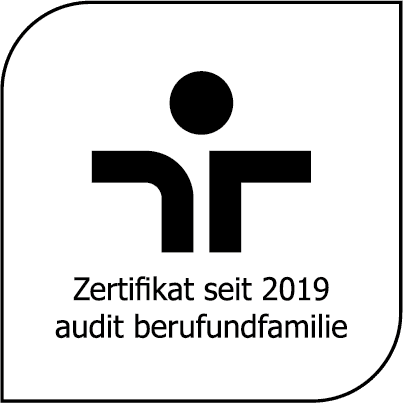Test instruments sorted
Contact person for the Open Test Archive
Gülay Karadere (Dipl.-Psych.)
Research Associate
guek@leibniz-psychology.org
DiWi
Test zum Wissen über verschiedene Diversitätsbereiche von (angehenden) Lehrkräften
Short abstract
The test (DiWi) measures the declarative factual knowledge of (prospective) teachers about different areas of diversity. It is available in a long form (DiWi: 142 items) and a short form (DiWi-K: 36 items) with the five subscales Emotional and Social Development (ESE), Learning (LE), Partial Learning Disorders (TLS), Gender (GES), and Cognitive Giftedness (HB). Conceptually, diversity knowledge can be located in pedagogical-psychological knowledge and thus also in the professional competence of teachers (Baumert & Kunter, 2011; Voss et al., 2015). Reliability: The internal consistency according to Cronbach was calculated separately for total test (α ≥ .81) and subscale (DiWi: α ≥ .84, DiWi-K: α ≥ .38) and according to McDonalds Omega (DiWi: ω ≥ .92, DiWi-K: ω ≥ .80). Split-half reliability was rtt = .93 and higher for both versions. Retest reliability of the short version over a three-month period was rtt = .55. Validity: Factor analysis yielded a 5-factor model with the general factor ""diversity knowledge."" An initial nomological network of convergent constructs around objectively measured diversity knowledge could be drawn. Furthermore, students of special education teaching had higher knowledge than students of other subjects and master students knew more than bachelor students.
Leibniz Institute for Psychology (ZPID). (2022). Open Test Archive: DiWi. Test zum Wissen über verschiedene Diversitätsbereiche von (angehenden) Lehrkräften. Available at: https://www.testarchiv.eu/en/test/9008312
Citation
Steinmayr, R., Heyder, A. & Tometten, L. (2022). DiWi. Test zum Wissen über verschiedene Diversitätsbereiche von (angehenden) Lehrkräften [Verfahrensdokumentation, Testbogen Lang- und Kurzversion, Auswertungssyntax und Datenmaske]. In Leibniz-Institut für Psychologie (ZPID) (Hrsg.), Open Test Archive. Trier: ZPID.
https://doi.org/10.23668/psycharchives.5136
Short information
Short Name DiWi
English Name Assessment of Knowledge about Diversity in the Context of an Inclusion-Oriented Teacher Training
Authors Steinmayr, R., Heyder, A. & Tometten, L.
Published in Test archive 2022
Copyright/Licence Copyright Authors; CC-BY-SA 4.0
Language versions deu
Application age Adults ((prospective) teachers, e.g. student teachers, trainee teachers and teachers from various types of schools)
Item number 142 items (long form); 36 items (short form)
Subscales 5 subscales: 1 Emotional and social development, 2 Learning, 3 Partial development disorders, 4 Gender, 5 Cognitive giftedness.
Application Time 25-30 minutes (long version); 5-10 minutes (short version)
Interpretation time per case approx. 8 minutes (long version), 2 minutes (short version)
Internal consistency: according to Cronbach for total test α ≥ .81 and subscale DiWi: α ≥ .84, DiWi-K: α ≥ .38; according to McDonald's Omega for DiWi: ω ≥ .92, DiWi-K: ω ≥ .80. Split-half reliability: min. rtt = .93. Retest reliability: rtt = .55 (short version; 3-month interval).
Evidence for factorial and convergent validity.
None. Reference values: Means and standard deviations.
Applications Research, teacher evaluation
There is no abstract in English available. Short information about the measure can be found under Overview. More can be found on the German pages.
There is no review in English available. Short information about the measure can be found under Overview. More can be found on the German pages.
First published in
Heyder, A., Vaskova, A., Hußmann, A. & Steinmayr, R. (2018). Wissen von angehenden Lehrkräften zu Diversität im Kontext schulischer Inklusion: Die Entwicklung eines Wissenstests und erste Ergebnisse. In S. Hußmann & B. Welzel (Hrsg.), DoProfiL - Das Dortmunder Profil für inklusionsorientierte Lehrerinnen- und Lehrerbildung (S. 267-278). Münster: Waxmann.
Feedback form
Feedback on the use of a procedure from the Open Test Archive of the Leibniz Institute for Psychology (ZPID) to the test author(s)
Contact information
Dr. Anke Heyder, Technische Universität Dortmund, Fakultät Erziehungswissenschaft, Psychologie und Bildungsforschung, Emil-Figge-Straße 50, D-44227 Dortmund
Lisa Tometten, M.Sc.Technische Universität Dortmund, Fakultät Erziehungswissenschaft, Psychologie und Bildungsforschung, Emil-Figge-Straße 50, D-44227 Dortmund
Prof. Dr. Ricarda Steinmayr, Technische Universität Dortmund, Fakultät Erziehungswissenschaft, Psychologie und Soziologie, Emil-Figge-Straße 50, D-44227 Dortmund

 Learn more about us!
Learn more about us! 
